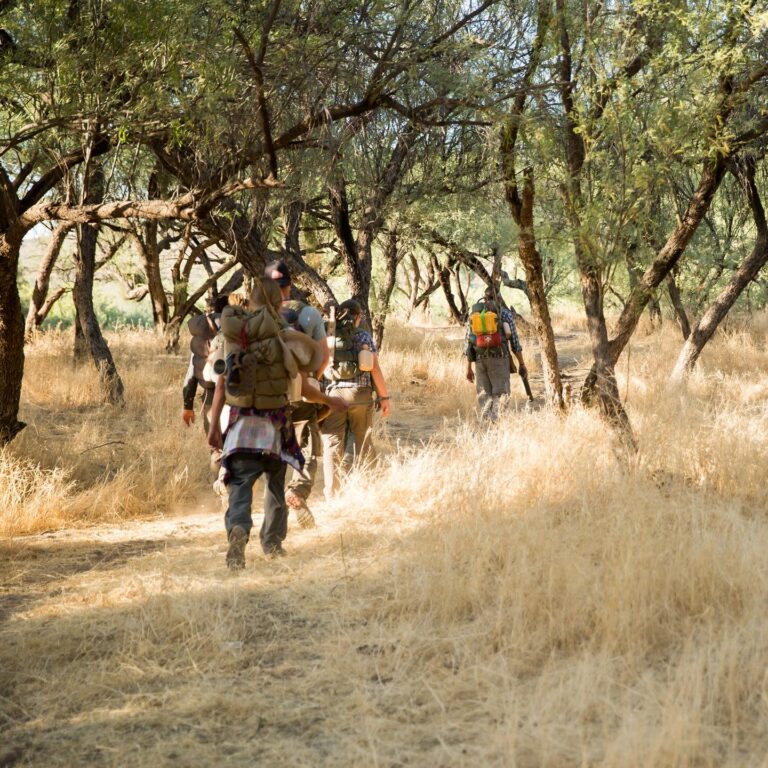A wilderness program is designed for youth between twelve and seventeen years old who struggle with behavioral and emotional concerns. This specialized, outdoor-based therapeutic process helps teens navigate personal challenges and develop life skills in a natural environment. Wilderness programs for teens generally combine outdoor activities such as camping, hiking, and survival skills with therapeutic support, including counseling and group therapy sessions.
This article explores how youth can benefit from wilderness therapy programs designed specifically for teens. Additionally, it highlights the main objectives associated with these programs.
What Are Wilderness Therapy Programs?
Wilderness therapy is a form of therapy that involves outdoor activities alongside traditional therapy sessions. It provides an understanding and motivating environment for individuals to discover themselves. The program teaches participants how to function in a group setting and develop meaningful relationships. This helps teens recognize their capabilities and strengths. Families and couples often participate in this type of therapy to create a bonding experience. Therefore, a family can enroll in wilderness programs to offer comprehensive support to troubled young members.
The primary aim of this program is to remove distractions and stress from a teen’s daily life, ultimately promoting personal growth, emotional balance, and positive behavior changes. Wilderness programs are particularly beneficial for teens struggling with mental health issues like substance abuse, anxiety, depression, and other behavioral problems. By nurturing a connection with nature, these programs offer a unique environment where teens can develop personal skills, enhance problem-solving abilities, and positively transform their lives and futures.
Objectives of Wilderness Therapy Programs
The primary objectives of wilderness therapy programs for teens involve fostering emotional and mental growth, building self-confidence, and developing effective management skills. These programs mainly aim to:
-
- Support Emotional Growth and Self-Confidence: By removing teens from their comfortable and familiar environments, these programs help them discover new aspects of themselves. Approximately 80% of teens who participate in wilderness programs go on to therapeutic boarding schools. These programs open doors to self-awareness and self-discovery. Free from external distractions, participants can explore and examine their emotions, thoughts, and behaviors. This process helps them gain a deeper understanding of their strengths and weaknesses.
-
- Build Confidence Through Engagement: By engaging in outdoor activities and overcoming challenges, teens develop a sense of self-confidence and accomplishment. Wilderness therapy programs for teens provide opportunities to build resilience and self-esteem as they learn to tackle different types of hurdles and confront their fears.
-
- Develop Coping Skills: By providing access to outdoor challenges, these programs help teens develop coping skills. They equip participants with practical strategies to manage and cope with their emotions. This, in turn, enables teens to make healthy life choices when handling changes and challenges. They learn problem-solving techniques, communication skills, and self-management strategies that can be beneficial in everyday life.
Understanding these objectives helps provide effective and comprehensive support to troubled teens, enabling them to develop the skills necessary for a healthier and happier life.
Elements of Effective Therapy Programs
There are various elements involved in designing effective wilderness therapy programs for teens, including:
- Outdoor Activities and Challenges: A key component of these programs is removing teens from their comfort zones and engaging them in outdoor activities and challenges. This encourages teens to use their strategies and skills to overcome obstacles. Such activities promote physical fitness and develop teamwork skills. By immersing them in a natural setting, teens are motivated to foster personal growth and emotional stability. Some common activities in wilderness programs include:
- Hiking: Helps build stamina and flexibility, enhancing problem-solving skills.
- Rock Climbing: Promotes trust among group members and develops team spirit. It boosts self-confidence and provides a sense of accomplishment upon successful completion.
- Survival Skills Training: Increases self-reliance and problem-solving abilities, teaching participants how to find solutions in difficult situations. This fosters critical thinking skills.
- Group or Individual Therapy Sessions: Effective wilderness programs for teens include group or individual therapy sessions. These supportive sessions allow troubled young people to express their emotions and experiences. Once the issues and challenges they face are understood, tailored treatment plans can be developed. Individual therapy sessions offer personalized attention, allowing teens to address specific concerns with skilled therapists who provide guidance and support.
Conclusion
In conclusion, to benefit from these specialized therapy programs, finding an organization that offers effective services is crucial. The Anasazi Foundation provides impactful wilderness programs for teens, offering comprehensive support and therapy sessions. With a team of caring staff and skilled therapists, the Anasazi Foundation delivers effective counseling and support to participants, helping them navigate their challenges and find a path to personal growth and healing.




